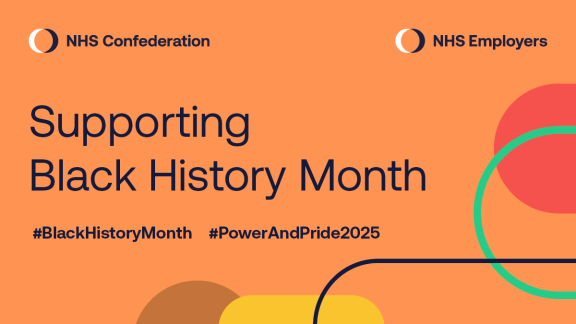Supporting Black History Month 2025

Black History Month is an opportunity to honour the achievements, history and culture of black people and their invaluable contribution to society and the healthcare system. It’s also an opportunity to connect; inspire and empower future generations.
This year’s theme ‘Standing firm in power and pride’, highlighted the importance of sharing stories of resilience, strength, and unwavering commitment to progress that defines the black community.
At a time when our black, Asian, and minority ethnic (BAME) colleagues are facing increased levels of racism, it is vital we reclaim the narrative and celebrate the crucial work they do in our organisations.
Black History Month provides an opportunity for organisations to support the campaign, raise awareness, share insights to help tackle racism and improve staff experience.
Joan Saddler OBE, director of partnerships and equality at the NHS Confederation said:
“As we enter Black History Month and reflect on this year’s theme of ‘Standing firm in power and pride’, we are reminded that celebration must walk hand in hand with the fight to tackle racism. While we honour the achievements of black trailblazers, we cannot ignore the rising reports of racism against BME staff working across the NHS – these reports include verbal abuse, harassment and vandalism. We must stand together and recommit to taking action towards safer workplaces for all. Each of us has a role to play in shaping a future rooted in equity, equality and respect.”



